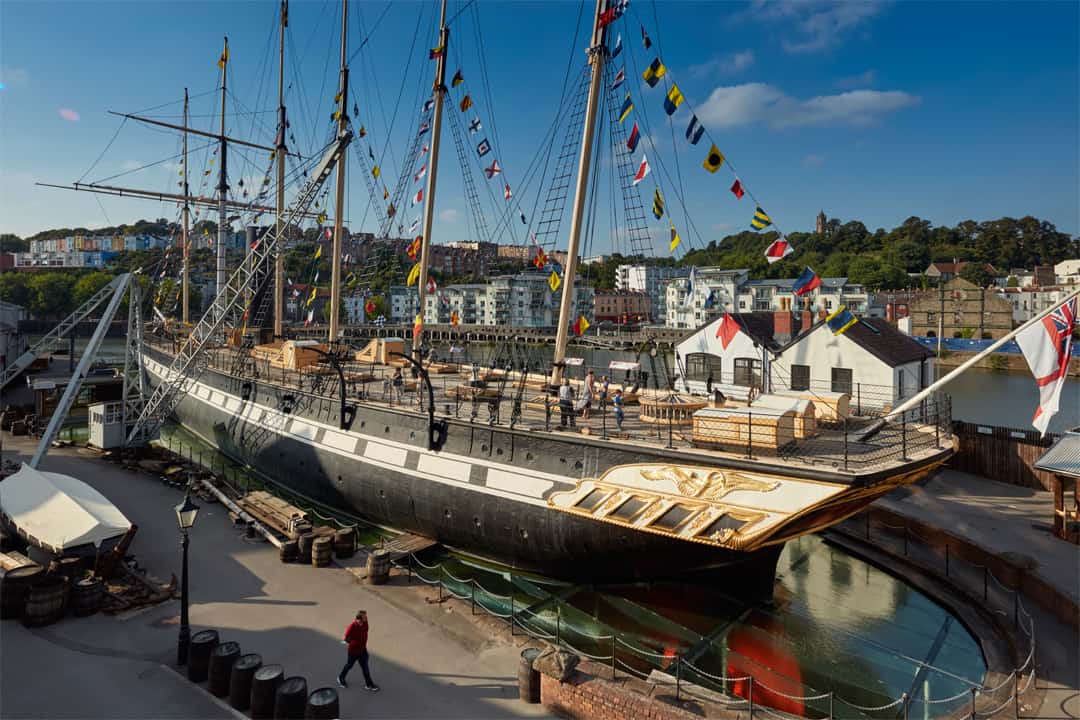A voyage from Liverpool to Australia could take up to 60 days. On board a ship rammed with upto 700 passengers, it’s not hard to imagine how difficult life in confinement could be. But, with these new restrictions undoubtedly came new creativity, as passengers looked to fill their time meaningfully. Perhaps we can take some inspiration from our Victorian voyagers?
This new-found time might be the perfect opportunity to finally catch up with some well-earned self-care or a candlelit bubble bath? Passengers of SS Great Britain enjoyed their own makeshift spa days. ‘Plunge baths’ filled with fresh sea water were regularly offered on the weather deck for passengers brave enough to dare. Steerage cabins could be stuffy, especially when the ship was near the equator and temperatures soared, so the invitation of an ice-cold bath would be quite appealing.
Perhaps now is the time to try cooking a new recipe? Mealtimes are a constant source of routine comfort for many of us (whilst resisting the temptation to eat the entire contents of the biscuit tin!) and this was no different for the passengers. However, with so many battling their way to be fed first, good manners sometimes got forgotten. “There are 14 persons at our table & for some time there was always a disgraceful scramble as those at the top of the table always seized more than their share” (Quaker, 1852).
We are now living with unfamiliar restrictions on our movement, able to leave home only for one form of exercise a day. Captain John Gray, one of SS Great Britain’s most treasured Captains, reportedly favoured climbing the masts in order to try and get his exercise. Passengers of the ship found their own ways to stretch their sea legs within the limited spaces onboard, walking laps of the weather deck to stay active. The reward could be the thrill of seeing unfamiliar wildlife: there were often sightings of albatross, flying fish and dolphins during passages to Australia. The risk could be gossip, as too much time spent in one person’s company could start rumours! Passenger Charles Albert Chomley wrote, “I walk with one young lady more than another simply because she can talk sense & make herself agreeable and it is reported that we are engaged”.
Many of us now find ourselves glued to a screen, and it’s almost impossible to imagine our lives now without a constant stream of information at our fingertips. Passengers onboard the ship were no different in their appetite for information. On some voyages they compiled ‘newspapers’ (for example the ‘Great Britain Times’, pictured) designed to keep passengers informed and entertained. Some ships were equipped with their own printing offices however, SS Great Britain’s publication would either be handwritten or printed on a portable press. When a week’s newspaper was complete, three copies would be made and distributed: one for the First Class Dining Saloon, one for the second class cabin, and another for the third class cabins, Steerage and sailors.
Music is often considered the food for the soul, so why not use your new free time to rediscover some classics? Whether in the mood for dancing, romancing or chancing, passengers would regularly organise musical entertainment to lift the spirits. “In the evening we had a sort of concert in steerage. Several songs were sung…a violinist accompanied the singers” (McAdam, 1864), Music proved popular among lower class passengers, but also those residing in first class “In our case a Concert or two, and a Mask Ball, successfully managed, gave a little life to our otherwise monotonous voyage” (McIntyre, 2011). Sounds like quite the party! Zoom disco anyone?
Author: Anna-Louise Highley, Interpretation Assistant



